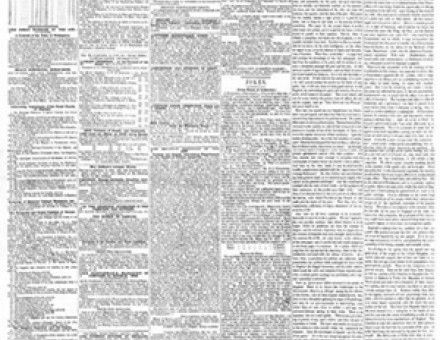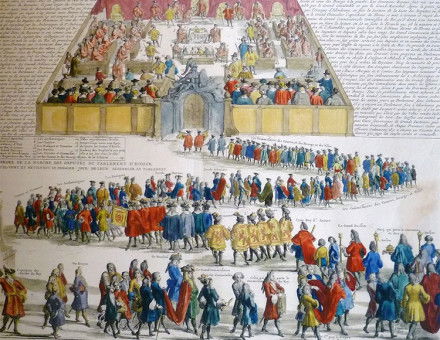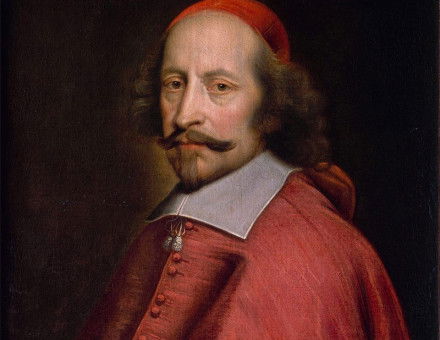Volume 7 Issue 7 July 1957
George Woodcock describes the thrice nominated Democratic candidate for the Presidency, William Jennings Bryan, who eloquently expressed the feelings of the Western farmers at a time when the United States were first becoming a great international Power.
H.J. Perkin traces the development of England's long love affair with newspapers.
In the second of a two part series, T.H. McGuffe describes the history of fire-arms, from the fourteenth century onwards, considering their uses and effectiveness in war, in sport, and for display.
By the Act of Union, the Scots lost their Parliament but gained the freedom of the British Empire.
France we know, but French governments perplex us, writes J.H.M. Salmon. Mazarin’s was one of the oddest regimes that France has undergone. This Italian “condottiere in diplomacy” ruled France, despite recalcitrant noblemen and civil war, for nearly twenty years.
Jon Manchip White describes how a garrison of 1,050 Europeans and 712 loyal Indians held the Residency at Lucknow against an army of 30,000 Sepoys.
Among the ruins of ancient Pylos— which, together with all the other major strongholds of Mycenaean power, was destroyed at the end of the Hellenic Bronze Age—a library of clay tablets has come to light, depicting a threatened society “in the throes of total moblization.” By L.R. Palmer.
T.H. McGuffe describes the history of fire-arms, from the fourteenth century onwards, considering their uses and effectiveness in war, in sport, and for display.





